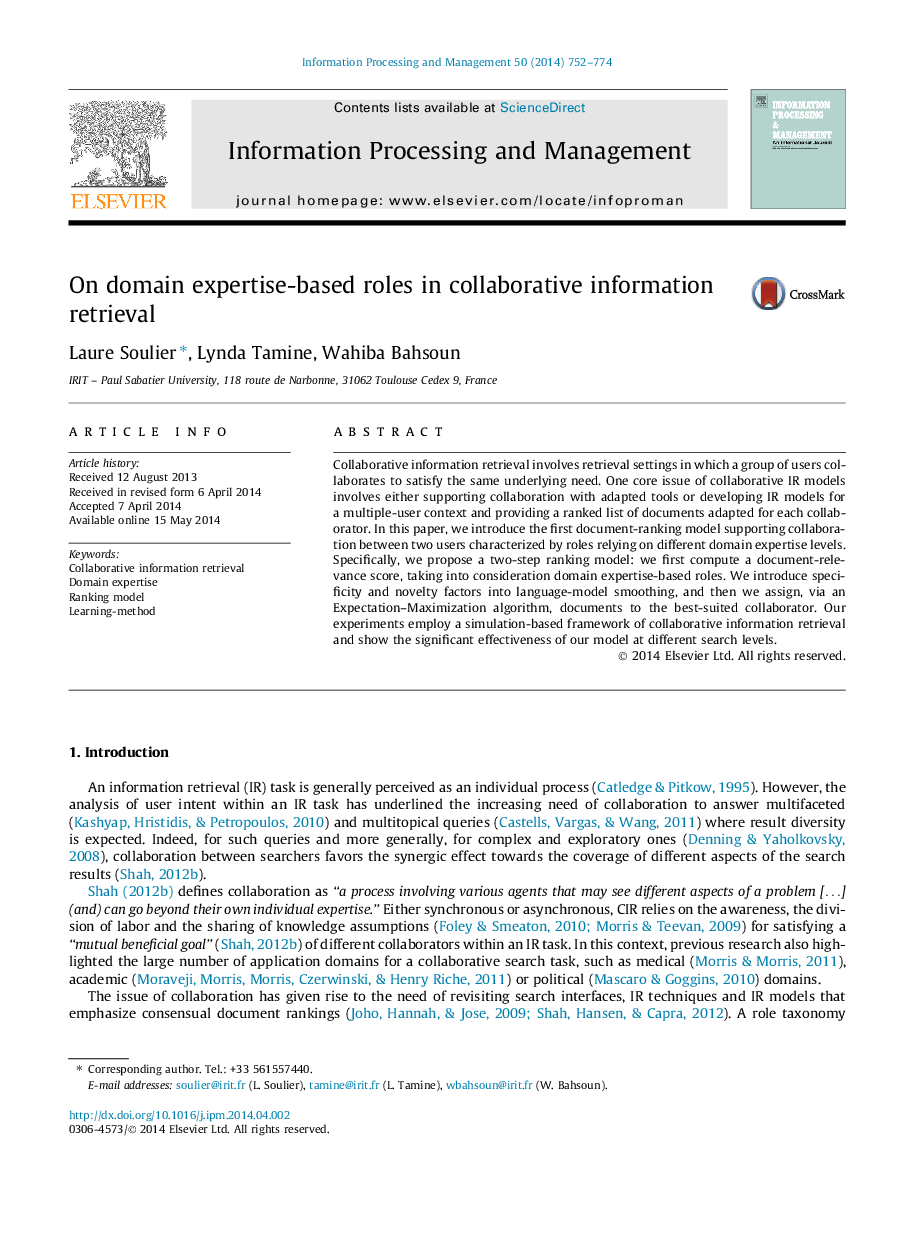| Article ID | Journal | Published Year | Pages | File Type |
|---|---|---|---|---|
| 515842 | Information Processing & Management | 2014 | 23 Pages |
•A collaborative ranking model involving users with different domain expertise levels.•EM-based learning method for document allocation.•Simulation-based evaluation with effective results at session and user’ roles levels.
Collaborative information retrieval involves retrieval settings in which a group of users collaborates to satisfy the same underlying need. One core issue of collaborative IR models involves either supporting collaboration with adapted tools or developing IR models for a multiple-user context and providing a ranked list of documents adapted for each collaborator. In this paper, we introduce the first document-ranking model supporting collaboration between two users characterized by roles relying on different domain expertise levels. Specifically, we propose a two-step ranking model: we first compute a document-relevance score, taking into consideration domain expertise-based roles. We introduce specificity and novelty factors into language-model smoothing, and then we assign, via an Expectation–Maximization algorithm, documents to the best-suited collaborator. Our experiments employ a simulation-based framework of collaborative information retrieval and show the significant effectiveness of our model at different search levels.
